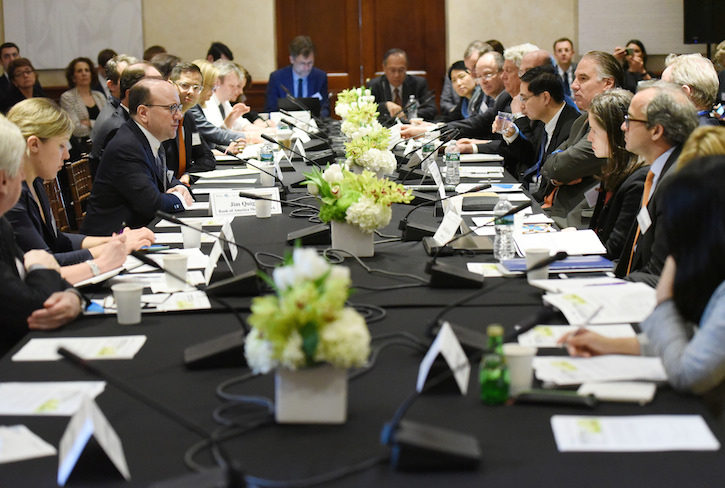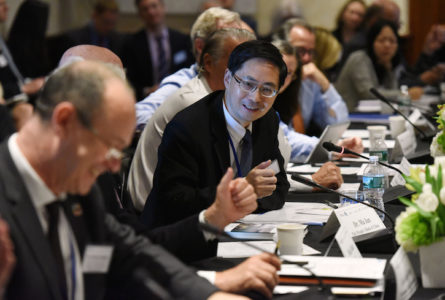
On April 20, the Paulson Institute co-hosted “Greening the Financial System: Enhancing Competitiveness Through Economic Development,” a high-level international roundtable discussion on green finance in Washington, DC. The meeting, co-convened by UNEP, SIFMA, Bloomberg Philanthropies, IIF, and EBF, was the third in a series of roundtable discussions about greening the financial system.
At the day-long event, global financiers and government officials noted the need —and the opportunity—for green finance to become a central part of mainstream finance. “We need to industrialize green finance,” said one participant. “We need to mainstream it, to make it all boring, scaled, and commoditized as quickly as we can.”

China’s 2016 G20 presidency created the Green Finance Study Group, which developed specific green finance recommendations, including promoting voluntary principles for green finance and increasing cross border investment in green bonds. As the current G20 president, Germany is now taking forward those recommendations to utilize green finance to catalyze economic growth, enhance competitiveness and develop infrastructure, while increasing transparency to help mitigate risk.
Participants at the meeting suggested that as investors increasingly see the potential for a robust market, momentum is building for green finance to play a more central role in the global financial sector. Singapore, for example, is launching a subsidy to spur the development of a green bond market. Shanghai reportedly is also developing a subsidy program to encourage the issuance of green bonds. In light of the growing commercial opportunities, London, Luxembourg, Shanghai, and other cities are vying to become leaders in green finance.
At the same time, discussants noted that companies increasingly are viewing green finance as a way to manage long-term business risks related to climate. “Green is becoming a long-term risk filter,” one participant said. “And so green finance will be increasingly incorporated into everyday finance.” Another speaker added: “Green finance needs to be depoliticized. This is about prudent financial management. In the future, you will be liable if you don’t look at environmental risk.”
China’s government, grappling with pollution problems at home, has taken a leadership position on green finance, promoting the development of international green finance guidelines. The Paulson Institute has been working with the Chinese government to refine those recommendations and also served as a non-commercial advisor to a new U.S.-China Green Fund that is investing in green projects in several Chinese cities.
Though momentum is building, the participants in the symposium agreed that the mainstream financial community still hasn’t woken up to the long-term business opportunity that ought to propel green finance onto center-stage. In the meantime, global standards for defining and evaluating so-called green projects are being developed. Standard & Poor is working on a set of evaluation criteria, for example, for investors to assess “green” projects. “We need the biggest banks and the biggest asset managers to integrate green finance into their strategy,” said one top banker. “But we can feel the surge of interest.”



